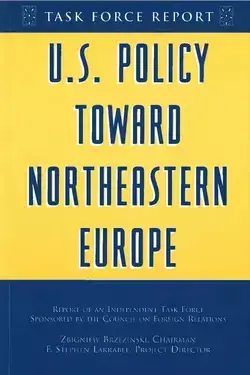
U.S. Policy Toward Northeastern Europe

- Task Force Report
- Analysis and policy prescriptions of major foreign policy issues facing the United States, developed through private deliberations among a diverse and distinguished group of experts.
During the Cold War Northeastern Europe was a strategic backwater and received relatively little attention in U.S. policy. However, since the end of the Cold War, the region has become an important focal point of U.S. policy. The Clinton administration gave Northeastern Europe high priority and viewed the region as a laboratory for promoting closer regional cooperation and reknitting Europe, both East and West, into a more cohesive economic and political unit. Its policy was also designed to reach out to Russia and to include Russia in regional cooperation arrangements in Northeastern Europe.
This Independent Task Force report endorses the general thrust of the Clinton administration’s policy, especially its emphasis on enhancing regional cooperation in Northeastern Europe and encouraging Russian participation in regional cooperative efforts. At the same time, the report recommends a number of steps to enhance the viability and effectiveness of the administration’s policy. In particular, the report argues that the administration should differentiate between the Baltic states based on their performance, and should admit them into Euro-Atlantic institutions individually rather than as a group.
More on:
The Task Force also recommends that the next round of enlargement include one Baltic state, provided that the state demonstrates the ability to meet the responsibilities of membership. The issue of Baltic membership, however, should not be the exclusive or central focus of U.S. strategy toward Northeastern Europe. Rather, it should be an integral part of a broader, multifaceted policy designed to enhance regional cooperation and stability in the region. Finally, if its strategy is to succeed, the administration must develop stronger support for its policy, both within the Congress and among America’s European allies, and devote more resources to implementing its policy.
More on:
 Online Store
Online Store